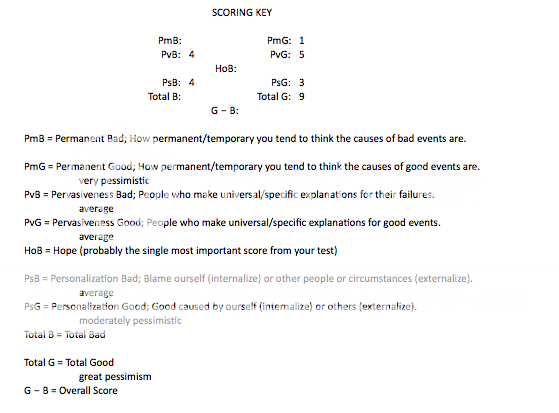EcK
The Memes Justify the End
- Joined
- Nov 21, 2008
- Messages
- 7,707
- MBTI Type
- ENTP
- Enneagram
- 738
The dualities in the test can make it a bit confusing at first I guess. For example a low score in permanence for the 'bad' would mean that you do not see bad situations as structural and unmutable: Which would make you 'optimistic'.Apparently, the lower the HoB score, the more "hopeful" we are.
I find it funny that I am as hopeful as whatever, and that there aren't droves of people more hopeful than me. But I suppose recovering from a depression makes one sensitive to the thought patterns that lead to it.
In parallel, A low score on the 'good' is the opposite, it would mean that (while more realistic) you do not assume that the good will keep on coming like a unicorn spewing rainbow dressing


